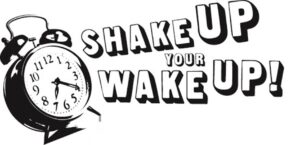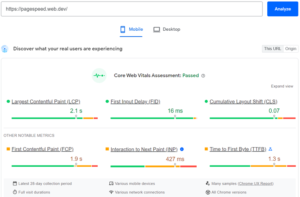
Today’s traveler’s journey is becoming increasingly fragmented due to the rapid expansion of new travel super apps and the constant updates to ranking algorithms by distribution giants like Google, Expedia, Make My Trip etc. The unstoppable growth of metasearch engine traffic adds to the complexity, making it daunting to create and implement an effective hotel marketing strategy Our hotel management company strongly recommends maintaining a holistic, cross-channel approach to tackle these challenges.
A robust hotel marketing plan’s primary objective is to enhance brand visibility and ensure your property is bookable wherever potential customers research their trips. To achieve this, it is crucial to map your guest’s journey and tailor your marketing efforts accordingly.
Following are the best practices we will discuss which will create solid marketing plan and strategies for your hotel.
- Guest experience is every thing.
- Don’t underestimate the power of your website.
- Social media spread your stories
- Reputation management helps
- Content too market you
- SEO support
- Micro Targeting
- Diversify and Experiment
- Review your distribution channels
- Understand the effectiveness of each marketing activity
- Train your team to sell better and upsell when there is a scope
- Set the right objective to succeed
- Communication with the team and stakeholders.
Guest experience is every thing.
Last year the Expedia Group introduced a significant algorithm update that impacts the visibility of properties in the OTA’s search results. This update goes beyond the conventional listing strength and places significant emphasis on the frequency of delivering excellent guest experiences. Factors such as relocation and refund rates, average ratings for cleanliness, amenities, room comfort, staff, and overall property are now crucial in determining a property’s ranking.
This move by one of the world’s leading online travel agencies highlights the immense significance of guest experience in the hospitality industry. we firmly believe that exceeding guest expectations is crucial; it’s not about overselling, but rather ensuring that you never underdeliver on guest experiences. This approach is fundamental to building a strong reputation and maintaining success in the competitive market.
(read more… ideas to improve guest experience)
Don’t underestimate the power of your website
Your official website remains the most effective marketing tool, regardless of how visitors arrive- through SEO, paid search advertising, newsletters, social networks, or metasearch engines. When creating your website, keep these essential rules in mind:
- Prioritize User Experience: Design your website with your guests in mind, not based on personal preferences. Focus on usability and UX to ensure visitors can easily find the content they seek.
- Invest in Hosting and Page Speed: Don’t skimp on hosting, content delivery networks (CDNs), and on-page speed improvements. Studies show that if your website takes longer than three seconds to load, you could lose half of your visitors. A slow loading speed can undermine your marketing efforts.

Make sure to run your own test in Google´s PageSpeed insights tool
- Content Management System: When choosing a Content Management System (CMS), consider whether a proprietary or open-source solution best suits your needs. There is no right or wrong answer, but ensure it fulfills your requirements.
- Use latest and updated SEO practices: Stay updated with the latest SEO best practices, particularly focusing on Google, which holds over 90% of the market share. Regularly check Seroundtable.com for comprehensive lists of Google search ranking algorithm updates, especially the major “core updates,” which occur approximately 3-4 times a year.
- Create an eye catchy call to action button: Create an eye-catching Call-to-Action (CTA) button that aligns with your website’s goal, whether it’s increasing bookings or receiving more MICE requests. A clear and strategic CTA can enhance your website’s effectiveness.
- User Behaviour: Continuously track user behavior using heat mapping and on-page analytics tools. By analyzing this data, you can identify any issues and make necessary improvements to enhance the website’s performance. Remember, a website is an ongoing project, constantly evolving and improving
Social media spread your stories
The utilization of social media in the hospitality industry sparks debate, primarily due to our reliance on last-click attribution when analyzing marketing results. While social media may not often contribute to the final step of guest reservations, it plays a significant role in the initial micro-moments of their booking journey.
To maximize the benefits of social media, engage your guests with captivating content and encourage them to share their positive experiences. Tailor your approach by selecting the right platforms based on your target customers. LinkedIn and Twitter work well for attracting business travelers, while Facebook and Instagram are suitable for leisure and adult travelers.
For younger audiences, consider investing in platforms like Pinterest, or Snapchat. For increased visibility in Asia, explore alternative platforms like WeChat, Sina Weibo, Qzone or Naver.
However, be cautious not to spread yourself too thin by focusing on too many platforms, as this might hinder your success.
When collaborating with influencers always request their analytics before finalising any contracts. Understanding their followers, demographics is crucial to ensure their align with your potential customers and avoid any unwanted surprises. Remember, success is not guaranteed in any strategy so strategic planning and careful evaluation are essential to achieving positive outcome.Top of Form
Reputation management helps
When Google evaluates a website for ranking, it considers “E-A-T” – Expertise, Authority, and Trust. Reviews play a crucial role in measuring the Trust aspect. These review signals are significant ranking factors, and it’s been proven that responding to reviews can benefit your SEO. Increasing the number of reviews can also boost your search engine optimization, in addition to other benefits like understanding your property’s strengths and weaknesses and effective problem-solving.
While most reviews are typically found on Google, Booking.com, Expedia, and TripAdvisor, it’s essential to monitor other platforms as well. To optimize your online presence, claim your hotel listing on various booking, maps, and review sites and ensure they are kept up-to-date. By doing so, you can enhance your hotel’s credibility and visibility, ultimately positively impacting your website’s ranking in search engine results.
Use following best practices to get reviews
You can request reviews from customers by sharing a URL specific to your business.
You can encourage your customers to spread the word about your business through Google reviews with these best practices:
- Verify your Business Profile: This makes your hotel information show up on Maps, Search, and other Google services. To respond to a review, you must have a verified business.
- Remind guests to leave reviews: Let them know it’s quick and easy to leave reviews. You can also get guests to leave reviews if you create and share a link.
- Reply to reviews to build guest trust: Your guest will notice your business values their input if you read and reply to their reviews.
- Value all reviews: Reviews are useful for potential travellers when they’re honest and objective. Travellers find a mix of positive and negative reviews more trustworthy. You can always respond to a review to show the customers that you care and provide additional context.
Content too market you
Let’s start by dispelling a myth: content marketing encompasses more than just what you publish on your blog. It includes videos, newsletters, and social media posts as well. When creating content, always consider your target audience and focus on the channels where your (potential) guests interact. If your blog page receives minimal traffic, it may be more effective to concentrate on other, more visible platforms.
If you find yourself facing writer’s block, consider using AI content and image generator tools like copy.ai, MidJourney, or Craiyon. While AI-generated content currently goes against Google’s webmaster guidelines, these tools can be useful for outlining content. However, remember that the “human touch” remains essential for creating engaging and meaningful content. A typing assistant can also be beneficial in reviewing spelling, grammar, punctuation, clarity, engagement, and delivery mistakes to enhance the quality of your content.
- SEO support
Is SEO dead? This notion has been circulating since the mid-2000s, but it is far from the truth. SEO has indeed evolved, but it has only improved with time. As search engine algorithms increasingly rely on AI and machine learning, they are constantly evolving at a rapid pace. Consequently, old black-hat tactics from the late ’90s not only prove ineffective today but can also harm your rankings. For instance, Google’s recent “helpful content update” prioritizes human-focused content over content tailored solely for search engines.
Moreover, if you aim to enhance your visibility in non-Google-centric regions like Russia or Asia, it is essential to monitor your website’s ranking on search engines like Yandex or Baidu. Additionally, don’t overlook the significance of “off-site” optimization. Regularly auditing your OTA (Online Travel Agency) profiles is vital to ensure your listings are fully optimized and up-to-date. By staying informed and adapting your SEO practices accordingly, you can continue to leverage the power of search engines effectively
- Micro-Targeting
In the past, we had mass marketing, followed by niche marketing. However, today’s focus should be on “Micro-Marketing. With the abundance of data that hotels can collect on their guests, prospects, and potential customers, properties can create marketing personas and segment their audience based on location, demographics, preferences, and more.
To be effective, it’s essential to tailor your message according to your audience. For instance, differentiating your approach when communicating with value seekers versus luxury travelers, or when targeting business travelers compared to leisure guests, can yield better results. Furthermore, consider sending diverse messages at different times of the day. A last-second overnight special offer may work wonders at 6:00 PM but might not be as effective at noon.
By leveraging personalized data and delivering tailored messages, you can engage with your audience more effectively, increasing the chances of converting prospects into loyal and returning guests.
Diversify and Experiment
Avoid putting all your efforts into one strategy; it’s not a wise move. Embrace the idea of exploring different approaches and conducting multi-testing. What worked in the past may not be effective in the future, especially in marketing, where there is no universal solution that fits every situation. Stay open to experimenting and adapting to changes, as it is the key to success in a dynamic and ever-evolving landscape
- Review your distribution channels
The million-dollar question is: What constitutes a good distribution mix? Unfortunately, there’s no simple answer to that. Different properties have different objectives – some may prioritize increasing awareness through OTA’s wide reach, while others aim to reduce cost-per-acquisition and boost direct revenue.
Expedia reports that two-thirds of travelers who book directly have previously visited an OTA. Hence, optimizing your OTAs’ listings is crucial. Ensure your photos are up-to-date and comprehensive, and provide detailed information on property and room amenities, points of interest, fees, policies, and settings. OTAs not only play a vital role in a healthy distribution mix but also serve as a highly effective top-funnel strategy for brand awareness.
- Understand the effectiveness of each marketing activity
Ensure you establish clear Key Performance Indicators (KPIs) and diligently monitor your outcomes. Successful marketing is ever-evolving, and as time passes, you’ll need to adjust, refine, and sometimes even change course entirely. The emerging GDPR concerns regarding Google Analytics’ privacy compliance might impact the accuracy of tracking marketing activities in the future. However, for the time being, the more in-depth analysis you can conduct, the more beneficial it will be for your marketing efforts.
- Train your team to sell better and upsell when there is a scope
You might be familiar with your booking engine’s conversion rate, but have you considered the conversion rate of your reservation department? While online bookings have become dominant, telephone and face-to-face interactions remain essential channels for hotels. Some hoteliers may view them as operational services rather than commercial opportunities. However, your human staff can play a significant role in redirecting guests to your direct channels, upselling, and increasing ancillary revenue. Implementing automatic up/cross-selling tools is helpful, but continuous training for your staff is vital to maximize their potential and enhance overall revenue generation
- Set the right objective to succeed
The rule we live by, and one you should embrace too, is that if you can’t track it, it’s not marketing. The key to a successful marketing strategy lies in setting achievable short-term, mid-term, and long-term goals, along with clear Key Performance Indicators (KPIs), and diligently tracking them. It’s crucial to remember that your objectives are flexible and not fixed in stone. Depending on your hotel’s stage, whether it’s just starting, operating, or undergoing renovation, your KPIs may and will change to align with your business needs. Being adaptable in tracking and adjusting your marketing approach is essential for achieving success in the dynamic hospitality industry.
Conclusion:
Indeed, developing a robust marketing strategy now demands a multi-disciplinary approach due to the ever-increasing and diverse touchpoints of today’s travelers. Gone are the days when a simple website and brochure were enough. In today’s highly competitive industry, staying ahead requires a comprehensive understanding of the distinct dynamics behind each platform to effectively engage with your target audience and maintain a competitive edge. Embracing this multi-dimensional approach will enable you to navigate the intricate landscape of the hospitality industry and build a successful marketing strategy.
PS: If you have any doubts or uncertainties about running your hotel and implementing effective marketing strategies, don’t hesitate to reach out to us. We offer hotel management services and hotel marketing services to assist you in building a solid plan that will surpass your competition. Our team of experts is here to support you in creating and executing a successful strategy tailored to your unique needs and objectives. Feel free to contact us for personalized assistance in achieving your business goals in the hospitality industry.
Cheers!
Piyush Bhatnagar II Director-Strategic Alliance II 3Q Progressive Alliance
